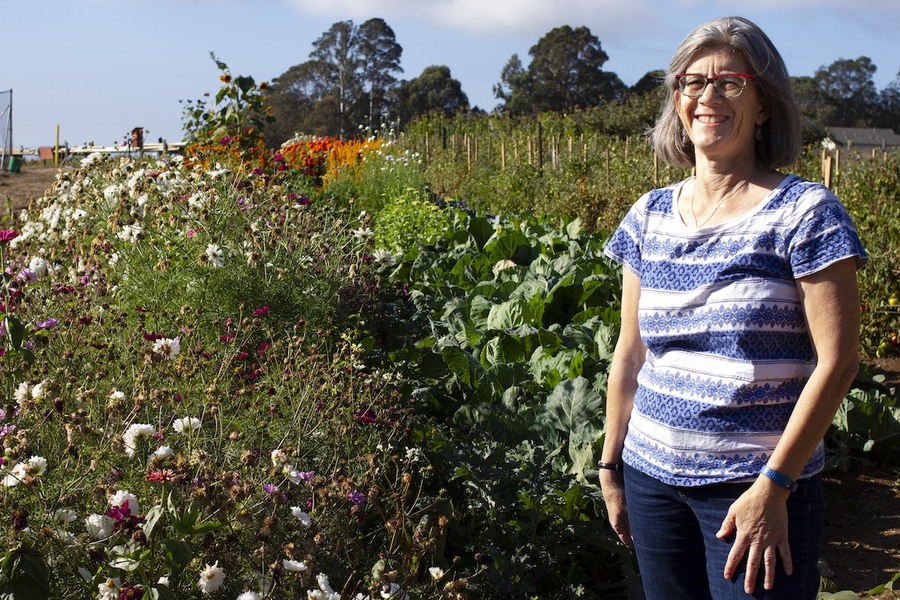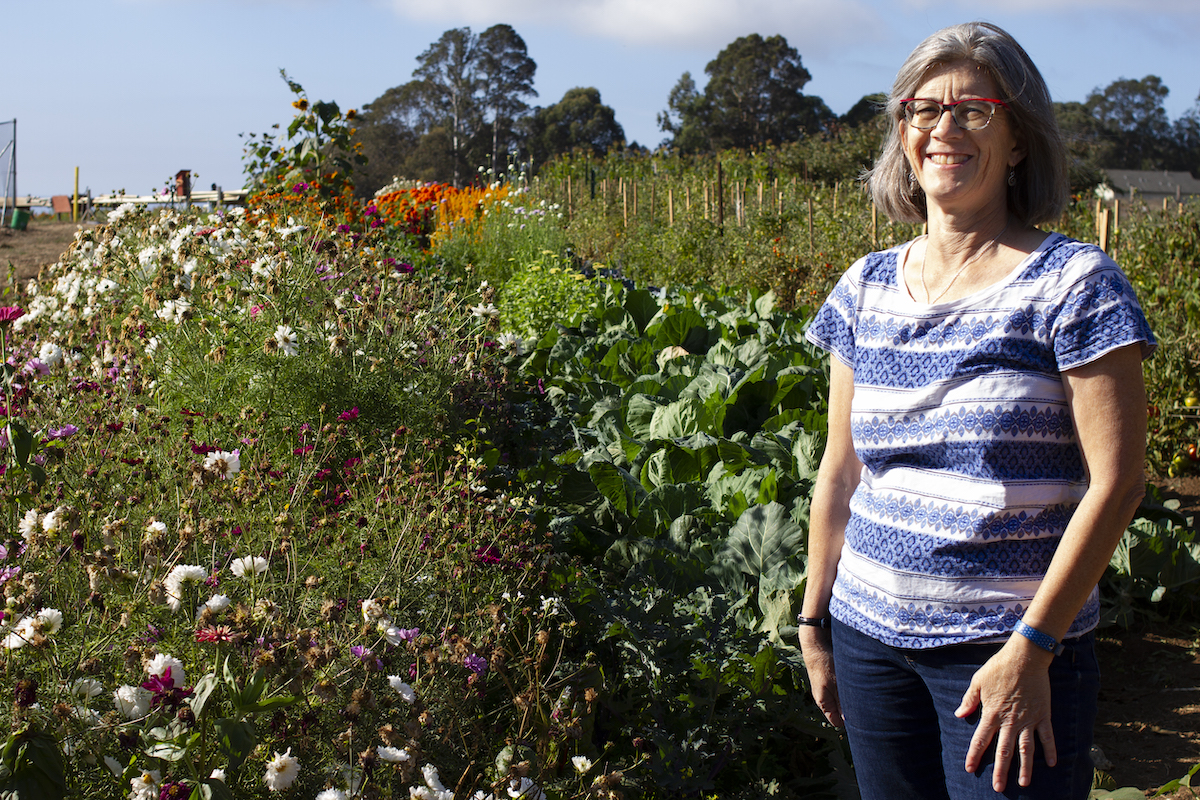An alumna includes CASFS in her legacy with a planned gift.
When Lisa Schaechter decided to make a plan for her assets in the case of her death, she thought about the causes she already gives to. Schaechter (Crown ‘83, biology/chemistry) grew up with tzedakah, the Jewish obligation of giving, and has always had favorite organizations.
“The moment that I started working, I felt I was fortunate enough to be able to pay my bills, and I should give a little to something I care about,” she says. “It wasn’t a lot, it still isn’t. It just feels like that’s something we all should do.”
One of her causes is the Center for Agroecology and Sustainable Food Systems at UC Santa Cruz, which she supports because of its contributions to sustainable agriculture.
“It’s a program that has really changed the world,” she says. “When I was a student, the organic produce didn’t look appetizing and there wasn’t very much of it. Organic food was just this wild idea.”

MOCI
Schaechter, who is in her 50s, says the impetus for her planning came when she realized her home had greatly multiplied in value since she bought it. She has no children or other heirs. If something happened to her, she doesn’t want to leave a mess for her siblings or parents.
“I have these assets. I felt like I needed to get a few things organized.”
A friend had told her about MOCIs, or memoranda of charitable intent. She established a MOCI at Community Foundation Santa Cruz County, which makes it simple if she ever wants to change what organizations her bequest goes to.
In addition to CASFS, she selected the Land Trust of Santa Cruz County, Second Harvest Food Bank, and the Asian Rural Institute, a group in Japan that teaches sustainable agriculture to community organizers from Asia and Africa. Her gifts align closely with her enthusiasm for farming, cooking and eating, and the outdoors.
From lab tech to tech writer
A technical writer, Schaechter, sometimes gets asked if she has any time for creative writing. She says the question comes from a false assumption: Schaechter’s route to writing originated in the laboratory.
“There’s no novel at home,” she says.
When she graduated from UC Santa Cruz, her first job was in the university research laboratories. That led to work testing software designed for scientists, which involved exchanges with technical writers.
“I found myself explaining things to them and decided to cut out the middleman,” Schaechter says.
She now writes instruction manuals for scientific instruments and software. She lives in Santa Cruz with her big black dog Claude.
